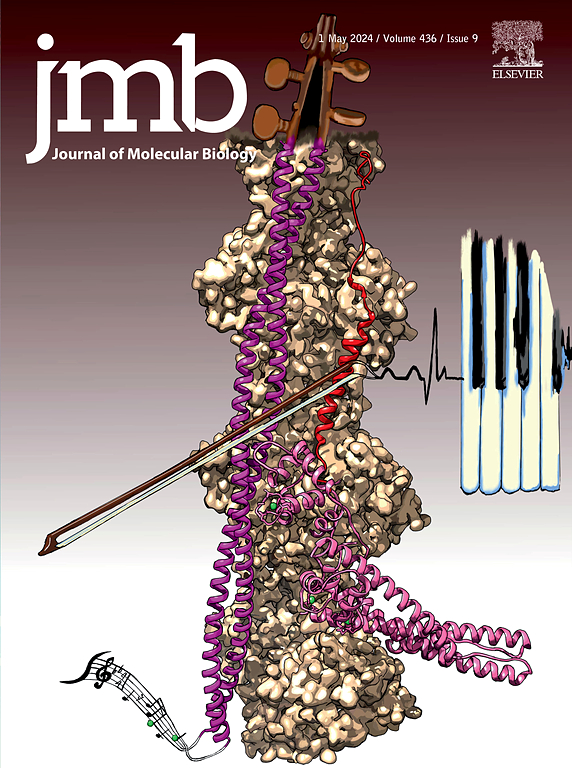Rising Star: Lysosomes as Dead Cell Buriers and Key Guardians of Organismal Homeostasis
IF 4.5
2区 生物学
Q1 BIOCHEMISTRY & MOLECULAR BIOLOGY
引用次数: 0
Abstract
Xiaochen Wang studied plant biology as a Ph.D. student at Peking University, China, and worked on programmed cell death as a post-doctoral fellow at University of Colorado at Boulder. Wang set up her own research group to initially investigate the clearance of apoptotic cells by lysosomes and later redirected her research to decipher lysosome dynamics and functions in a multicellular organism. Lysosomes are major degradative organelles and signaling centers in the cell that play important roles in a wide variety of processes to maintain cell and tissue homeostasis. Lysosome dysfunction is associated with metabolic disorders, neurodegenerative diseases, and age-related pathologies. As the burier of dead cells, lysosomes degrade apoptotic cells delivered via phagocytosis to enable a safe funeral without stimulating inflammatory responses. The Wang lab has systematically dissected the regulatory pathways by which apoptotic cells are recognized and engulfed by phagocytes, and delivered to and digested by lysosomes. Intrigued by the highly changeable morphology and versatile functions of lysosomes, Wang and colleagues developed C. elegans as a multicellular model to investigate how lysosome dynamics and functions are regulated to maintain animal development and longevity.

冉冉升起的新星:溶酶体作为死细胞的埋葬者和生物体动态平衡的关键守护者。
王晓晨在北京大学攻读植物生物学博士学位,并在科罗拉多大学博尔德分校从事程序性细胞死亡的博士后研究。Wang成立了自己的研究小组,最初研究溶酶体对凋亡细胞的清除,后来将她的研究方向转向破译多细胞生物中溶酶体的动力学和功能。溶酶体是细胞中主要的降解细胞器和信号中心,在维持细胞和组织稳态的各种过程中发挥重要作用。溶酶体功能障碍与代谢紊乱、神经退行性疾病和年龄相关病理有关。作为死亡细胞的埋葬者,溶酶体降解通过吞噬传递的凋亡细胞,使其安全埋葬而不刺激炎症反应。Wang实验室系统地剖析了凋亡细胞被吞噬细胞识别和吞噬,并被溶酶体传递和消化的调控途径。Wang和同事们对溶酶体高度多变的形态和多功能感兴趣,他们将秀丽隐杆线虫作为多细胞模型来研究溶酶体的动力学和功能是如何被调节以维持动物的发育和寿命的。
本文章由计算机程序翻译,如有差异,请以英文原文为准。
求助全文
约1分钟内获得全文
求助全文
来源期刊

Journal of Molecular Biology
生物-生化与分子生物学
CiteScore
11.30
自引率
1.80%
发文量
412
审稿时长
28 days
期刊介绍:
Journal of Molecular Biology (JMB) provides high quality, comprehensive and broad coverage in all areas of molecular biology. The journal publishes original scientific research papers that provide mechanistic and functional insights and report a significant advance to the field. The journal encourages the submission of multidisciplinary studies that use complementary experimental and computational approaches to address challenging biological questions.
Research areas include but are not limited to: Biomolecular interactions, signaling networks, systems biology; Cell cycle, cell growth, cell differentiation; Cell death, autophagy; Cell signaling and regulation; Chemical biology; Computational biology, in combination with experimental studies; DNA replication, repair, and recombination; Development, regenerative biology, mechanistic and functional studies of stem cells; Epigenetics, chromatin structure and function; Gene expression; Membrane processes, cell surface proteins and cell-cell interactions; Methodological advances, both experimental and theoretical, including databases; Microbiology, virology, and interactions with the host or environment; Microbiota mechanistic and functional studies; Nuclear organization; Post-translational modifications, proteomics; Processing and function of biologically important macromolecules and complexes; Molecular basis of disease; RNA processing, structure and functions of non-coding RNAs, transcription; Sorting, spatiotemporal organization, trafficking; Structural biology; Synthetic biology; Translation, protein folding, chaperones, protein degradation and quality control.
 求助内容:
求助内容: 应助结果提醒方式:
应助结果提醒方式:


